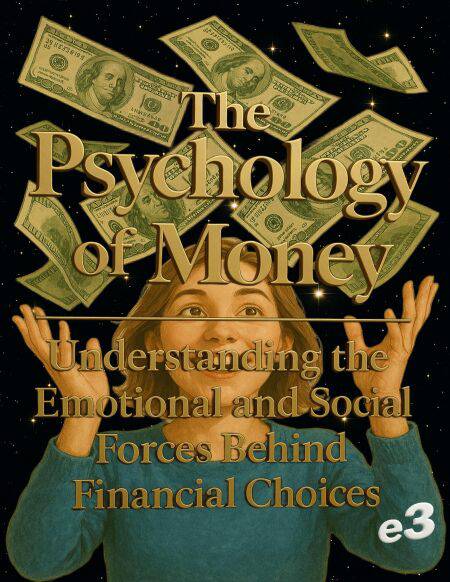
Bedankt voor het vertrouwen het afgelopen jaar! Om jou te bedanken bieden we GRATIS verzending (in België) aan op alles gedurende de hele maand januari.
- Afhalen na 1 uur in een winkel met voorraad
- In januari gratis thuislevering in België
- Ruim aanbod met 7 miljoen producten
Bedankt voor het vertrouwen het afgelopen jaar! Om jou te bedanken bieden we GRATIS verzending (in België) aan op alles gedurende de hele maand januari.
- Afhalen na 1 uur in een winkel met voorraad
- In januari gratis thuislevering in België
- Ruim aanbod met 7 miljoen producten
Zoeken
The Psychology of Money : Understanding the Emotional and Social Forces Behind Financial Choices E-BOOK
1, #2
e3
E-book | Engels
€ 8,99
+ 8 punten
Omschrijving
Preface Money is more than just a means of exchange; it is a powerful force that can shape our lives, decisions, and relationships. While we often approach financial matters with the intent of being rational and objective, our choices are frequently driven by factors beyond mere numbers and logic. This book delves into two critical aspects that profoundly influence our financial behaviors: emotional factors and social influences. Money has the unique ability to evoke strong emotions, such as fear, greed, envy, and anxiety. These emotions can cloud our judgment, leading us to make decisions that might not align with our long-term goals or values. Fear of losing money might make us overly cautious, preventing us from seizing valuable opportunities. On the other hand, greed can push us into risky ventures, driven by the allure of quick gains. Understanding how these emotional triggers work is essential for achieving a healthier relationship with money. Equally impactful are the social influences that shape our financial attitudes and behaviors. Our financial choices are often affected by the people around us—family, friends, and society at large. If our social circles are filled with big spenders, we might feel compelled to adopt similar spending habits to fit in or keep up. Conversely, being surrounded by frugal individuals can encourage us to adopt more cautious and considered approaches to money management. Recognizing these influences allows us to break free from societal pressures and make decisions that truly reflect our values and priorities. By exploring these emotional and social dimensions of money, this book aims to provide readers with a deeper understanding of the psychological forces at play in their financial lives. With this awareness, we can cultivate more mindful and empowered approaches to managing our finances, leading to greater financial well-being and peace of mind.
Alleen bij Standaard Boekhandel
+ 8 punten op je klantenkaart van Standaard Boekhandel
Beoordelingen
We publiceren alleen reviews die voldoen aan de voorwaarden voor reviews. Bekijk onze voorwaarden voor reviews.










